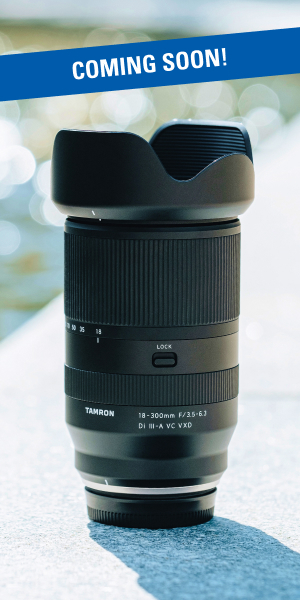Lighting isn’t just about visibility — it’s your most powerful tool for storytelling in portrait photography. Whether you’re capturing subtle emotion or bold expression, portrait lighting techniques for character play a crucial role in defining the mood, texture, and personality of the image.
Tamron Ambassador Nader Abushhab shares his creative approach to portrait lighting, using Tamron lenses to bring out the essence of every subject.
What You’ll Learn in This Article:
- How to use hard light to emphasize facial structure and detail
- Techniques for balancing ambient light for natural or dramatic effects
- Ways to color grade in-camera using gels and white balance
- How different lighting temperatures influence tone and mood
- How Tamron lenses help you enhance character in portraiture
Why Lighting Matters: Shaping Character in Portraits

When capturing portraits that truly reveal a subject’s character, lighting plays a pivotal role in shaping mood, emphasizing features, and conveying emotion. With the right lighting techniques, you can turn a simple portrait into a powerful, character-rich storytelling image.
Whether your style leans toward soft, dreamy tones or bold, contrast-heavy drama, understanding light manipulation is essential. With Tamron lenses, you can enhance every nuance your lighting brings out.
I remember first learning about portraiture and I was always told to use big soft light to flatter subjects. While this method is true in a lot of cases, you can have a lot of fun and chisel your subject with hard light. The features and shadows become crisp, making your subject almost pop out more. Don’t be afraid of hard light. Start practicing harnessing it!
TIP 1: Use Hard Light to Sculpt Character and Detail

Many photographers start with the classic advice: use big, soft light sources to flatter your subjects. While that’s effective, don’t underestimate the power of hard light to bring out striking facial details and depth.
Hard light creates crisp shadows and high contrast, which can make your subject pop and emphasize texture, bone structure, or mood. It’s especially useful for dramatic or editorial-style portraits.
Try this:
Position a bare strobe or small reflector close to your subject at an angle to carve out facial features. Experiment with distance and shadow placement for dramatic effects.
TIP 2: Balance Ambient Light for Natural or Stylized Results

Balancing your artificial light with existing ambient light is key to maintaining visual harmony in your scene. Start by metering or manually setting your exposure based on the ambient light, then introduce your key light to either match or contrast that exposure.
- Neutral balance preserves realism and environment
- Underexposing ambient adds drama and focus on your subject
- Overexposing ambient creates a bright, airy vibe
Pro Tip:
Always adjust ambient first, then light your subject to taste. This keeps your background and subject lighting coherent.
TIP 3: Color Grade In-Camera for Mood and Expression

Color grading doesn’t have to wait until post-processing. With gels or creative white balance choices, you can craft a color story right in-camera.
Option A: Use Gels
Add colored gels to a background or fill light. Then, control power output so your subject is lit primarily by neutral light, and the shadows pick up the gel color.
Option B: White Balance Tweaks
Set your camera’s white balance for your strobe (5500K) and let the ambient light shift colors naturally:
- Candlelight (2000K) or tungsten (3200K) = warm, golden backgrounds
- Shade or blue hour (7500K+) = cool, moody tones
Creative Control:
Keep your key light tight so it only hits the subject — this keeps the subject neutral while ambient tones shift creatively.
Enhancing Portrait Character with Tamron Lenses

Tamron lenses offer the sharpness, clarity, and focal range needed to fully realize your portrait lighting techniques. Whether you’re shooting tight headshots with a Tamron 90mm, or environmental portraits with a 35-150mm, the lens quality supports the lighting precision and depth you create.
Learn about Tamron Lenses at an authorized Tamron dealer in your area or visit the TAMRON Store today.

